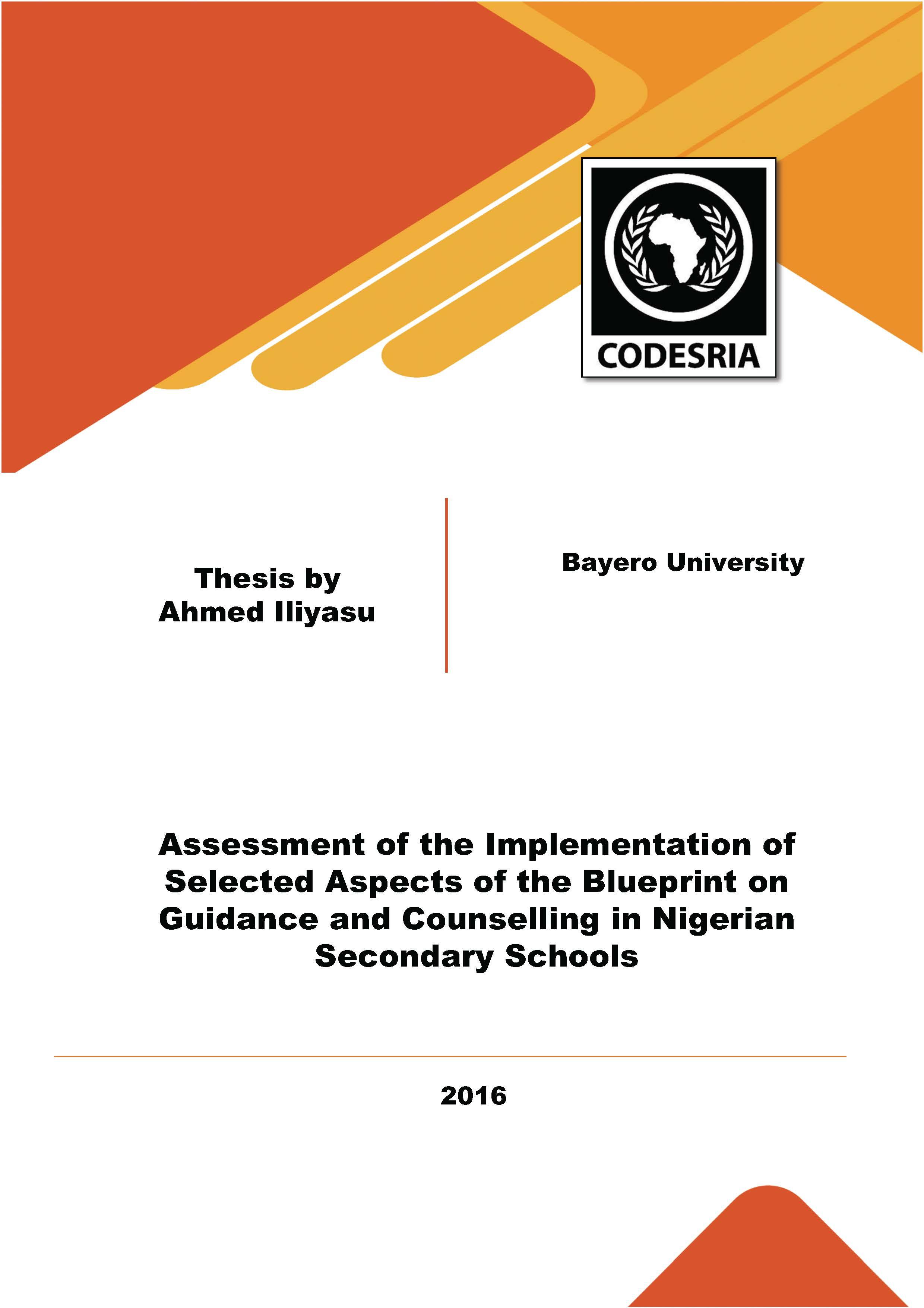Assessment of the Implementation of Selected Aspects of the Blueprint on Guidance and Counselling in Nigerian Secondary Schools
Keywords:
Educational guidance, secondary schools, guidance and counselling services, NigeriaSynopsis
This study assesses the implementation of selected aspects of the Blueprint on Guidance and Counselling in Nigerian secondary schools. Eighteen research questions guided the study and six major hypotheses were formulated and tested. Aspects of the descriptive statistics were used to find out the extent of the implementation of the main variables and chi square statistical method was employed in the analysis of the research hypothesis. Six thousand, three hundred and eighty seven public secondary schools constituted the population of the study, out of which one hundred and sixty eight respondents were
sampled out using purposive sampling technique. Some of the findings reveal that there is low implementation of the administrative aspects in all the studied schools which cut across various categories of the public secondary schools in Nigeria (co-education, single sex male and female, day and boarding, junior and senior secondary schools, states and the geo political zones).With regards to financing aspect also there was low level implementation in Nigerian secondary schools. The same
situation exists in respect of the evaluative aspects of the Blueprint in terms of its implementation in Nigerian secondary schools. Differences were observed with regards to the implementation of the three aspects among states of the federation as well as the geo-political zones and various categories of the sampled schools. It is hereby recommended that Guidance and Counselling activities should be made functional through providing facilitative environment in which both teaching and
non teaching staff should be fully mobilized to take part in guidance and Counselling activities; adequate facilities need to be provided; capacity building must be encouraged on the part of Counsellors; financial backing is highly needed to improve the standard of the Guidance and Counselling services in Nigerian Secondary Schools.
Downloads
References
Adeniran, T. (2000). Introductory Remarks. Blueprint on Guidance and Counselling for Educational Institutions in Nigeria. Abuja; Arts and Cultural Education Branch, P.5.
Akinboye, J.O. (1987). Guidance and Counseling Strategies: For Handling Adolescent and Youth Problems. Ibadan: University Press Limited.
Akinade, E.A. and Others (1976). An Introduction to Guidance and Counselling: A basic Text for Colleges and Universities. Ibadan: Caltop.
Akpan, G.A. and Anwana, U.I. (2004). Principal’s’ Leadership Styles Career Counselling in Technical Colleges in Akwa Ibom States. The Counsellor; Journal of the Counselling Association of Nigeria, Volume 20 No.1, August, 2004 P.II.
Alutu, A.N.G. (2001). Delegation, Supervision, Accurate Record Keeping and Orientation Tolls for Efficiency and Teacher Productivity. Paper Delivered during the teachers’ Seminar at Federal Government Girls College, Benin City.
Alutu, A.N.G. (2002). Guidance and Counselling Services in Federal Government Colleges in Nigeria. The Counsellor, the Nigerian Journal of Guidance and Counselling. Volume 8, No.1, 164-165.
Arewa, H.(2000). Towards the improvement of Education in Northern States of Nigeria.Kaduna:NERP.
Aronson, E. (1988).The Social Animal.5th. ed.New York: W.H. Freeman & Co.
Armstrong, M. (1996). Personnel Management Practice. London: Kogan Page Limited, 120 Pentonville Road, Sixth Edition.
Ayuba, A. F. (2002). Dearth of Professsional Counsellors in Kano State. Unpublished Masters thesis submitted to Department of Education, Bayero University, Kano.
Bajuwoye, O. (1986). Guidance and Counselling. The Cinderella of the National Policy on Education. Nigeria Journal of Counselling and ment Vol. I, 15-21.






